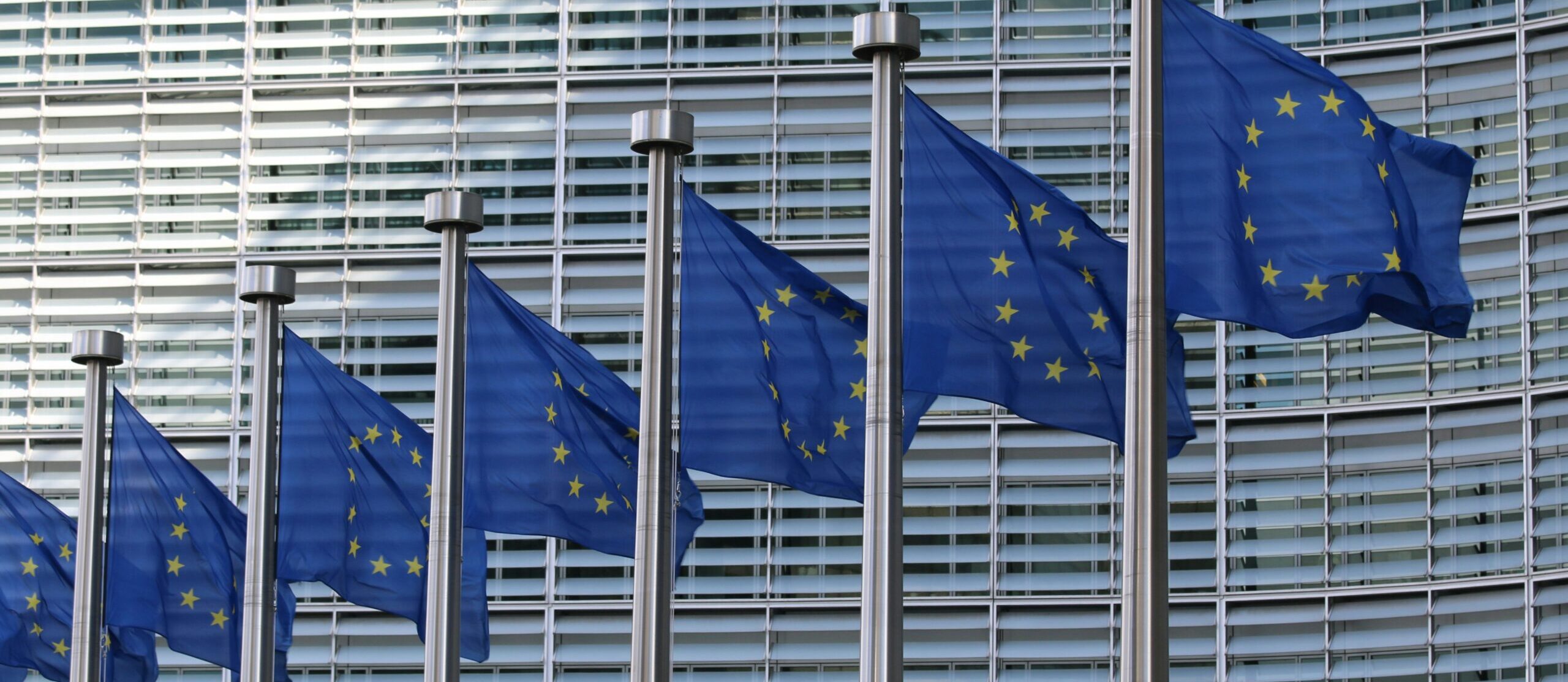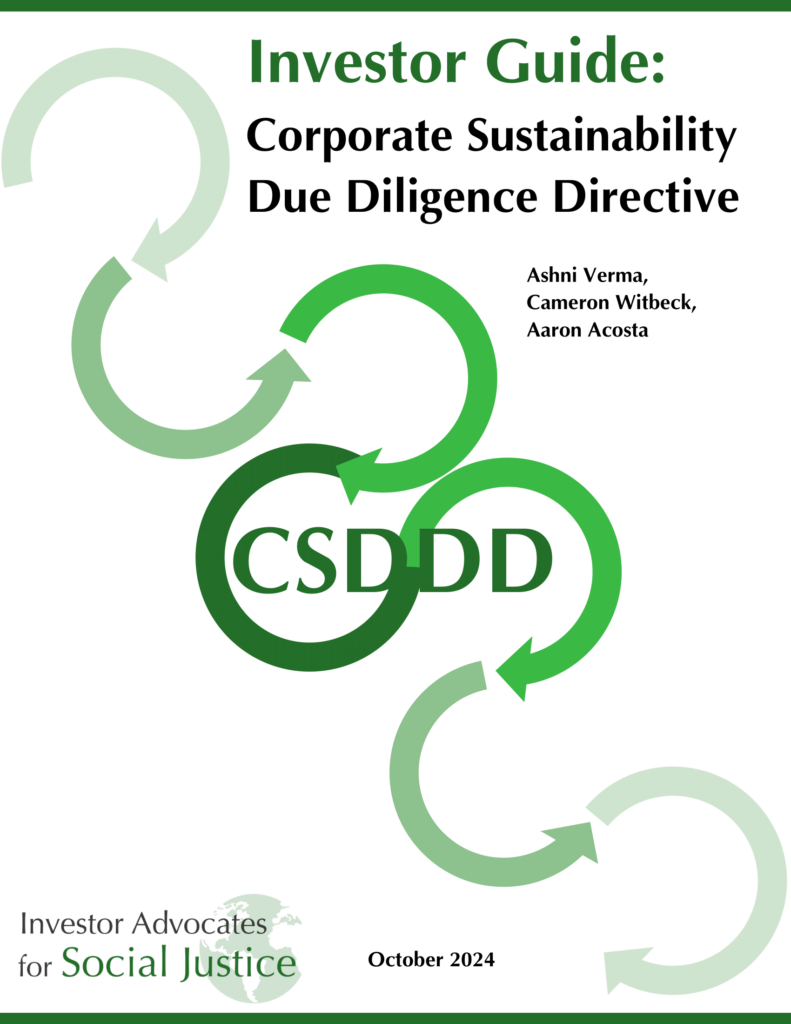IASJ Publishes Investor Guide on the Corporate Sustainability Due Diligence Directive (CSDDD)

– October 2, 2024
On July 5, 2024, the EU released its landmark due diligence regulation, the Corporate Sustainability Due Diligence Directive (CSDDD). Among other things, the CSDDD lays out requirements for certain EU-based and non-EU companies regarding their human rights and environmental due diligence (HREDD) and requires them to implement a climate transition plan. Unfortunately, the directive was significantly watered down at the eleventh hour, and additionally, misses the mark on a few key areas. For example, Indigenous Peoples’ rights are not included in the CSDDD’s articles or annexes, and certain value chain issues, like technology end-use, are not covered.
Despite these deficiencies, the historic significance of such wide-reaching due diligence regulation cannot be understated. While imperfect, the CSDDD does constitute a positive step in the right direction towards corporate accountability. Companies covered by the CSDDD will be responsible for implementing and reporting on their HREDDD processes, including the effectiveness of such processes, related to their own operations, the operations of their subsidiaries, and the operations of their business partners in their chain of activities. For those companies covered by the CSDDD, and their investors, the directive represents significant material risk. Failure to comply with the CSDDD’s requirements may result in significant fines (which can be calculated up to 5% of Company’s worldwide net turnover) and, in some cases, civil liability. Furthermore, companies found in violation of the CSDDD’s requirements can face severe reputational damage, which can erode investor and client trust in the company, threaten long-term shareholder value, and ultimately result in significant financial loss.
In light of this new regulation, Investor Advocates for Social Justice (IASJ) created this Investor Guide to help explain the CSDDD’s requirements in an accessible way. We hope the Investor Guide can be a helpful resource for investors interested in the scope, requirements, and implications of the CSDDD, as well as how the directive interacts with other key EU legislation.


